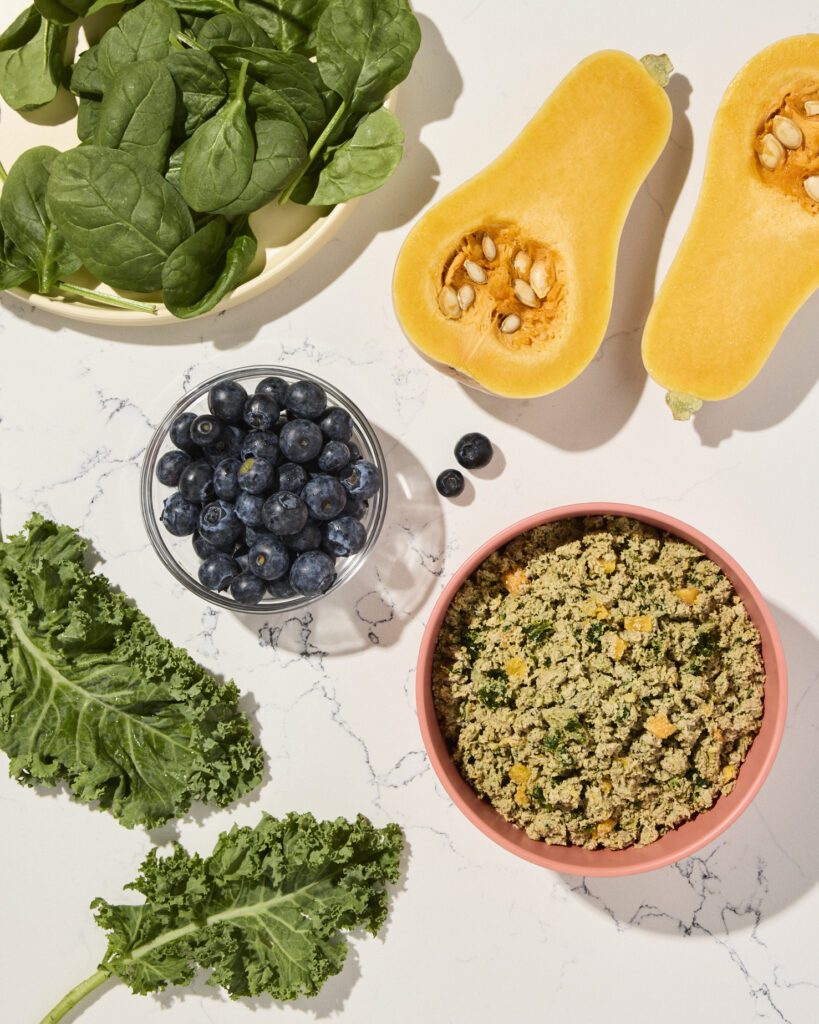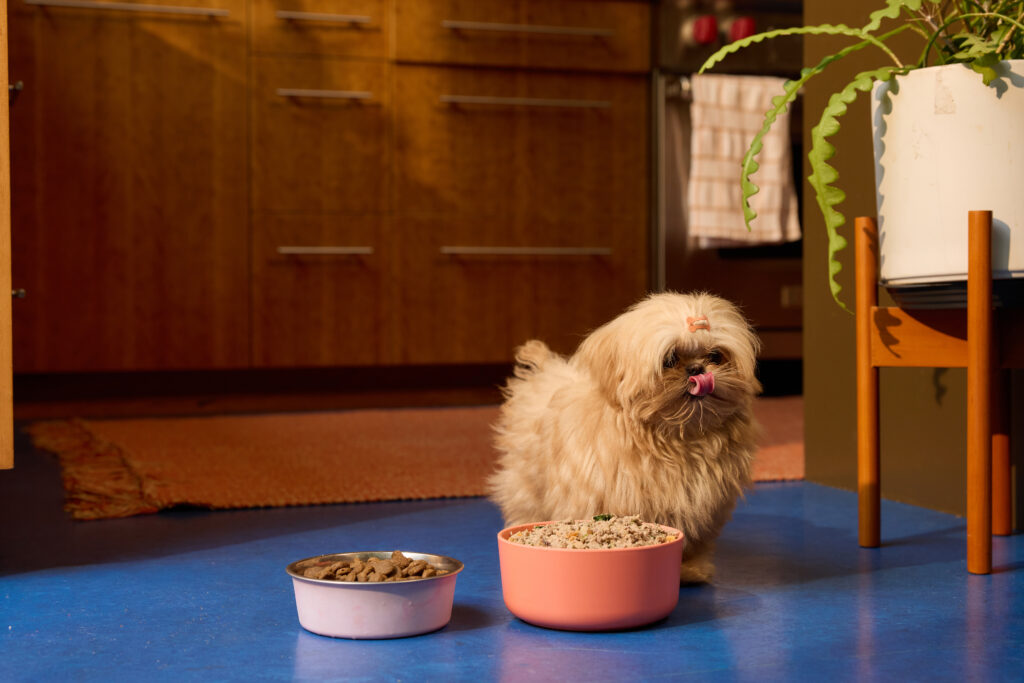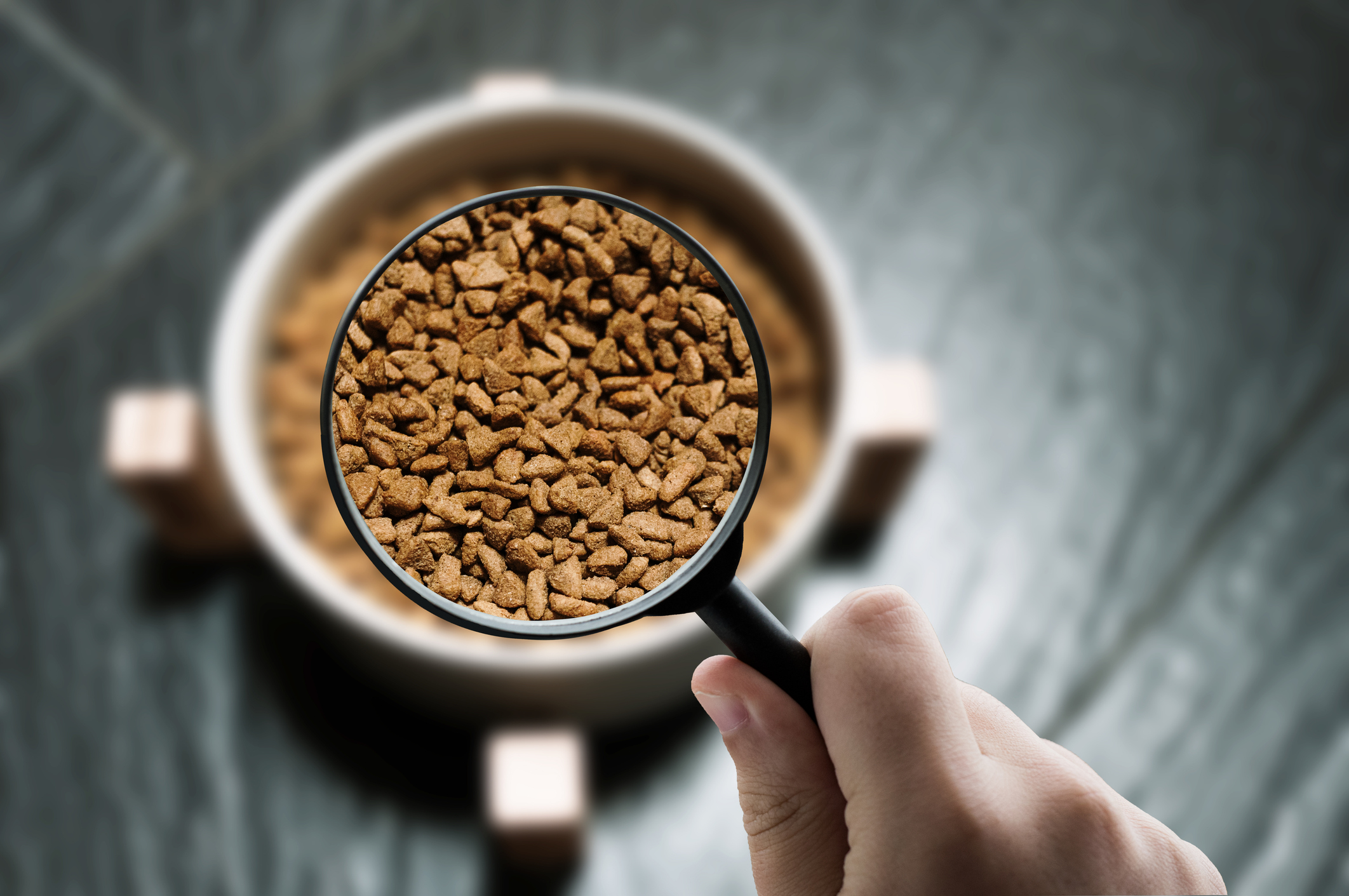Hey Ollie blog readers! We’re offering you an exclusive 60% OFF your starter box! Try now!
Among the many decisions you’ll make as a new pet parent, choosing the right food for your growing puppy is one of the most important. The quality of your puppy’s diet can impact their development, immune system, and long-term health. In their quest to give their puppies the best life possible, many pup parents are turning to human-grade food—but what exactly makes it different, and is it the best choice for your dog?
Understanding Human-Grade Dog Food
Human-grade dog food refers to products that are held to the same standards as food intended for human consumption. This distinction goes beyond marketing—it represents a fundamental difference in ingredients, processing methods, and quality control.
What “Human-Grade” Actually Means
The term “human-grade” indicates that the food is made with ingredients that are deemed edible for humans and processed in facilities that meet human food production standards. However, it’s important to understand that this designation alone doesn’t guarantee that the food provides complete and balanced nutrition for your puppy[1].
Human-grade dog food is typically minimally processed and often contains a higher percentage of real meat, vegetables, and whole grains[2]. This minimal processing helps preserve the natural nutrients in the ingredients, potentially making them more bioavailable to your growing puppy.
Human-Grade vs. Feed-Grade: The Critical Difference
Most conventional dog foods are classified as “feed-grade,” which means they can contain ingredients not deemed suitable for human consumption. These may include meat by-products, fillers, and preservatives that you wouldn’t find in human-grade alternatives.
The distinction matters because puppies, with their developing systems, can benefit from clean, whole-food ingredients that are easier to digest and free from potentially harmful additives. Human-grade food can supplement a feed-grade diet to ensure your puppy ingests plenty of essential nutrients[3].
Nutritional Benefits for Growing Puppies
Puppies have specific nutritional needs that differ from adult dogs. Their rapid growth and development require carefully balanced nutrition to support healthy bone formation, cognitive development, and immune function.
Enhanced Digestibility and Nutrient Absorption
One of the most significant advantages of human-grade food for puppies is improved digestibility. Research indicates that human-grade formulas can be up to 40 percent more digestible compared to conventional dry food[3]. This enhanced digestibility means your puppy can absorb more nutrients from their food, supporting their rapid growth and development.
For puppies specifically, this improved nutrient absorption can be particularly valuable during their critical growth phases when their bodies are building bone, muscle, and neural connections at an accelerated rate.
Hydration Support
Many human-grade dog foods have higher moisture content than traditional kibble. This additional hydration can be beneficial for puppies, who may not always drink enough water on their own. Proper hydration supports kidney function, digestion, and overall cellular health in growing puppies[3].

Quality Ingredients and Their Impact on Puppy Health
The quality of ingredients in your puppy’s food directly affects their health outcomes. Human-grade foods typically prioritize whole, recognizable ingredients over highly processed alternatives.
Real Meat and Protein Sources
Puppies require more protein than adult dogs to support muscle development and growth. Human-grade dog foods often contain higher percentages of real meat—not meat by-products or meat meals—providing high-quality, complete proteins that contain all the essential amino acids your puppy needs.
These protein sources are more similar to what dogs would consume in nature, making them more biologically appropriate for your puppy’s developing digestive system.
Whole Fruits and Vegetables
Human-grade puppy foods typically include whole fruits and vegetables that provide natural sources of vitamins, minerals, and antioxidants. These nutrients support immune function, which is particularly important for puppies as their immune systems are still developing.
The antioxidants found in fruits and vegetables can help protect your puppy’s cells from damage caused by free radicals, potentially reducing the risk of chronic diseases later in life.
Tailoring Human-Grade Nutrition to Your Puppy’s Needs
Not all puppies have the same nutritional requirements. Factors like breed, size, activity level, and health conditions can all influence what constitutes optimal nutrition for your specific puppy.
Size-Specific Considerations
Large breed puppies have different nutritional needs than small breed puppies. Large breeds require carefully balanced calcium and phosphorus to support proper bone development and prevent orthopedic issues. Small breeds often benefit from more calorie-dense foods that accommodate their faster metabolisms.
Human-grade food options that are formulated specifically for puppies take these differences into account, providing tailored nutrition that supports healthy growth based on your puppy’s projected adult size[4].
Special Health Considerations
Some puppies may have food sensitivities, allergies, or other health conditions that require dietary adjustments. Human-grade foods, with their simpler ingredient lists and absence of common allergens or fillers, can be an excellent choice for puppies with sensitive digestive systems.
If your puppy has specific health concerns, consulting with your veterinarian before choosing a human-grade food option is essential to ensure it meets all their nutritional requirements.

Transitioning Your Puppy to Human-Grade Food
If you decide that human-grade food is the right choice for your puppy, a careful transition is important to prevent digestive upset.
Gradual Introduction
Start by mixing a small amount of the new human-grade food with your puppy’s current food. Over the course of 7-10 days, gradually increase the proportion of new food while decreasing the old food. This slow transition gives your puppy’s digestive system time to adjust to the new ingredients and higher nutrient density.
Monitoring Your Puppy’s Response
During the transition period, monitor your puppy closely for any signs of digestive upset or allergic reactions. Positive indicators that the new food is working well include:
- Consistent, well-formed stools
- Healthy skin and coat
- Appropriate energy levels
- Steady, healthy growth
If you notice any concerning symptoms, slow down the transition or consult with your veterinarian.

Ollie’s Approach to Human-Grade Puppy Nutrition
Ollie understands the unique nutritional needs of puppies and has developed human-grade food options specifically formulated to support healthy development. Their puppy recipes are created with input from veterinary nutritionists to ensure they provide complete and balanced nutrition for growing dogs.
What sets Ollie apart is their commitment to personalization. Rather than a one-size-fits-all approach, Ollie creates customized meal plans based on your puppy’s specific profile, including their age, breed, weight, activity level, and health considerations. This personalized approach ensures your puppy receives the precise nutrition they need during their critical growth phases.
Ollie’s human-grade ingredients are gently cooked to preserve nutrients while eliminating harmful bacteria, striking the perfect balance between safety and nutritional integrity. Their flexible delivery schedule makes it convenient to provide fresh, human-grade nutrition to your puppy without the hassle of frequent shopping trips.
Making the Right Choice for Your Puppy
Choosing the best food for your puppy involves weighing various factors, including nutritional quality, convenience, and budget considerations.
Questions to Consider
When evaluating whether human-grade food is right for your puppy, ask yourself:
- Does my puppy have any specific health concerns that might benefit from a cleaner, less processed diet?
- Am I willing to invest more in nutrition now to potentially reduce health issues later?
- Do I have the refrigerator space required for fresh food storage?
- How important is convenience in my feeding routine?
Consulting with Professionals
Before making any significant changes to your puppy’s diet, consult with your veterinarian. They can provide guidance based on your puppy’s specific health profile and help you determine if human-grade food is appropriate for their needs.
Frequently Asked Questions
Is human-grade dog food worth the higher cost for puppies?
Many pet parents find that the potential health benefits of human-grade food justify the higher cost, especially during the critical developmental period of puppyhood. The improved digestibility means your puppy absorbs more nutrients from the food you provide, potentially offering better value despite the higher price point.
Can puppies eat the same human-grade food as adult dogs?
Puppies have different nutritional requirements than adult dogs, particularly regarding protein, fat, and calcium levels. It’s important to choose a human-grade food specifically formulated for puppies or growth stages to ensure proper development.
How do I know if a human-grade food is nutritionally complete for my puppy?
Look for statements on the packaging indicating that the food meets AAFCO (Association of American Feed Control Officials) standards for growth or all life stages. This ensures the food contains all the essential nutrients your puppy needs in the right proportions.
Will human-grade food help prevent allergies in my puppy?
While no food can guarantee allergy prevention, human-grade foods with limited, high-quality ingredients may reduce the risk of food sensitivities developing. The cleaner ingredient profile eliminates many common allergens and additives found in conventional pet foods.
How much human-grade food should I feed my puppy?
Feeding amounts vary based on your puppy’s age, breed, size, and activity level. Most human-grade food companies provide feeding guidelines, but these should be adjusted based on your puppy’s individual needs and growth rate. Regular weight checks and body condition assessments can help ensure you’re feeding the right amount.
The food you choose for your puppy today lays the foundation for their health tomorrow. Human-grade options offer numerous potential benefits, from improved digestibility to higher-quality ingredients that support optimal development. By understanding what makes human-grade food different and how it might benefit your specific puppy, you can make an informed decision that supports their growth, health, and happiness for years to come.
If you’re considering making the switch to human-grade food for your puppy, explore Ollie’s meal plans for nutrition that will support your pup through all every stage of their life.
Citations
[1] https://www.petmd.com/dog/nutrition/what-is-human-grade-dog-food
[2] https://blog.thepetstable.com/why-feed-human-grade-dog-food/
[3] https://unionlakeveterinaryhospital.com/blog/what-is-human-grade-dog-food
Tagged As:

The nutrition your dog needs,
the food they want.

Enjoying our articles? Subscribe our Newsletters and get new articles directly to your inbox
You might also like
29 August 2025
8 MINS READ
Ultra-Processed Kibble Risks: The Science of Safer Fresh Meals
Like most pup parents, you want to give your dog the best life possible. While you might carefully read ingredient lists on dog food labels, there’s something potentially harmful lurking in ultra-…
by Ollie Pets
29 August 2025
10 MINS READ
Is Grain-Free Dog Food Safe? Unpacking the Facts
The right food is an essential part of supporting a long, happy life for your dog. While considering different diets, you may run into a number of grain-free options. As this type of food gains at…
by Ollie Pets
29 August 2025
6 MINS READ
Is Homemade Fresh Food Really Best for Your Dog?
Making your dog’s food at home may sound like a great way to go the extra mile and ensure your dog gets quality nutrition, but is it really the best option for your dog? While many pup parents l…
by Ollie Pets







